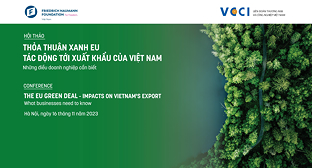Safety Valve or Flash Point-The Worsening Conflict between U.S. Trade Laws and WTO Rules
12/12/2007 12:00
Author: Lewis E. Leibowitz
The U.S. trade remedy laws—in particular, the antidumping and countervailing duty laws and the section 201 “safeguard” provision— are often defended as necessary for ensuring domestic political support for trade liberalization. Consequently, the argument goes, they actually strengthen the U.S. commitment to the World Trade Organization.
This argument ignores the controversy that the U.S. trade laws have sparked with trading partners abroad. More than any other country, the United States is being challenged for failure to abide by the multilateral rules that govern antidumping, countervailing duties, and safeguards. In response to a succession of wide-ranging challenges to U.S. trade remedy law and practice, the WTO Dispute Settlement Body has handed down a number of key decisions finding the U.S. government in violation of its international obligations.
A review of those disputes and the relevant WTO rulings makes clear that the U.S. trade remedy laws have become a flash point of tension in the international trading system. It is increasingly obvious that the U.S. laws in their current form and U.S. support for negotiated trade liberalization are not complementary but rather antagonistic and even incompatible. American policymakers are now faced with a stark choice between the trade law status quo and the integrity of the U.S. commitment to the WTO.
The U.S. trade remedy laws—in particular, the antidumping and countervailing duty laws and the section 201 “safeguard” provision— are often defended as necessary for ensuring domestic political support for trade liberalization. Consequently, the argument goes, they actually strengthen the U.S. commitment to the World Trade Organization.
This argument ignores the controversy that the U.S. trade laws have sparked with trading partners abroad. More than any other country, the United States is being challenged for failure to abide by the multilateral rules that govern antidumping, countervailing duties, and safeguards. In response to a succession of wide-ranging challenges to U.S. trade remedy law and practice, the WTO Dispute Settlement Body has handed down a number of key decisions finding the U.S. government in violation of its international obligations.
A review of those disputes and the relevant WTO rulings makes clear that the U.S. trade remedy laws have become a flash point of tension in the international trading system. It is increasingly obvious that the U.S. laws in their current form and U.S. support for negotiated trade liberalization are not complementary but rather antagonistic and even incompatible. American policymakers are now faced with a stark choice between the trade law status quo and the integrity of the U.S. commitment to the WTO.
| Tải tài liệu | |
|---|---|
| 2001-Safety-Valve-or-Flash-Point-The-worsening-conflict-between-US-trade-laws-and-WTO-rules.pdf | |
Các tin khác
- The Dispute Settlement Crisis in the World Trade Organization: Causes and Cures (16/03/2018)
- Modification of trade defence rules regarding non-market economy costs and prices (23/02/2018)
- Research Paper: Options for Disciplining the Use of Trade Remedies in Clean Energy Technologies (03/08/2017)
- Addressing the rise of Trade Remedies against Environmental Goods (03/08/2017)
- Anti-dumping Retaliation - —A Common Threat to International Trade (15/11/2016)
 Home
Home
 About Us
About Us




















